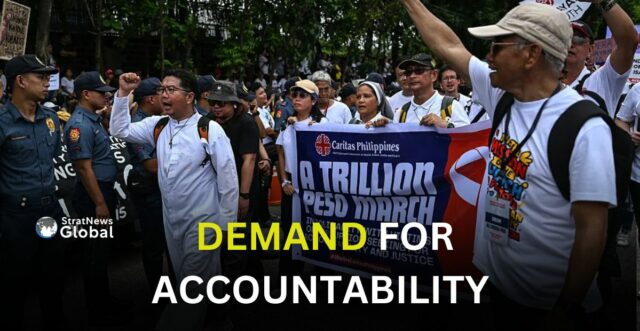From Kathmandu to Manila, the young generation is taking to the streets voicing their frustration over corruption, inequality, and political systems they feel are failing their future.
Just days after Nepal’s Gen Z protests made global headlines, thousands of Filipino youth flooded Manila on Sunday to denounce corruption in flood-control projects, demanding transparency and accountability from leaders they accuse of betraying the public trust.
The protests came after weeks of hearings in Congress where officials admitted that billions of dollars were spent on ‘ghost’ infrastructure projects. President Ferdinand Marcos Jr., whose father was ousted in the 1986 People Power revolt, promised to tackle the corruption issue but the question about his motive remains.
The protest was timed to coincide with September 21, the anniversary of the declaration of Martial Law in 1972 by late dictator Ferdinand Marcos.
While the majority of the protests remained peaceful, tension increased late in the afternoon near Ayala Bridge and Mendiola, Manila. Police reported that groups of masked youths hurled rocks and firebombs at security lines, prompting officers to disperse them. Authorities said 216 individuals, including minors, were arrested and 93 police officers were injured.
As per the Philippines News Agency report, Defense Secretary Gilberto Teodoro Jr. voiced concern over the protest now being a ‘national security issue’. In a radio interview, Teodoro cited unverified reports that illegal drugs and outside groups may have influenced some demonstrators, pointing to the use of black flags with skull markings as a possible sign of external agitation.
The agency also reported that the authorities said local terrorist groups may have tried to disrupt Sunday’s anti-corruption rallies in Metro Manila, leading the government to tighten security and investigate whether the protests were infiltrated.
Whether the protest will have a lasting change remains uncertain, but one thing is clear, the voice of the next generation is growing louder, and it is shaping the country’s political landscape in real time.





